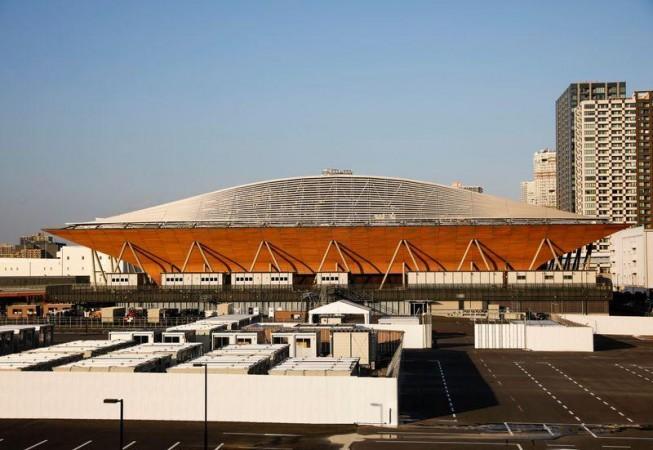The countdown to the Tokyo Olympics hit the 100-day mark on Wednesday as the Games draw closer to reality after a one-year delay due to the COVID-19 pandemic.
But several questions remain unanswered amid uncertainties over the pandemic, including how many spectators will be allowed into venues and what revisions will be made to participants' COVID-19 health protocols.

WHEN ARE THE SUMMER OLYMPICS?
The Olympics are scheduled for July 23 to Aug. 8 and the Paralympics from Aug. 24 to Sept. 5. About 11,000 Olympic athletes will compete in 33 sports, while more than 4,000 Paralympians will compete across 22 sports. Organisers say the Olympics will show there is light at the end of the pandemic tunnel.
WILL SPECTATORS BE IN VENUES?
International spectators will not be allowed into Japan, organisers decided in March, amid fears over new variants of the coronavirus. Organisers plan to decide this month on the maximum number of local fans permitted in venues.
ARE ATHLETES REQUIRED TO BE VACCINATED?
No. Organisers say they are planning health protocols to carry out a safe Games with the assumption that participants will not be vaccinated. The International Olympic Committee, however, urges athletes to be vaccinated. Participants must follow the health guidelines in their "playbook" regardless of whether they have been vaccinated.
WHAT ARE THE 'PLAYBOOKS'?
The playbooks, first unveiled in February, outline the rules that all Games participants must follow to prevent the spread of the coronavirus during the Games. Rules include mandatory mask-wearing, keeping 2 metres' distance from each other and clapping instead of singing or shouting to show support. Athletes will also be tested at least once every four days. Organisers plan to update the playbooks this month. They are available to the public on Tokyo 2020's website.
HOW IS THE TORCH RELAY GOING?
The torch relay began on March 25 and is an early test of organisers' ability to stage a large-scale event while implementing stringent COVID-19 countermeasures. About 10,000 runners will carry the torch across Japan's 47 prefectures over a four-month period. There are no reports so far of infections stemming from the event. Osaka prefecture, however, decided to hold its leg of the relay this week in a park instead of on public roads after a surge in infections prompted it to declare a COVID-19 emergency.
WHAT ABOUT THE TEST EVENTS?
Tokyo still has several test events, which are important dress rehearsals to confirm the Games' operational capabilities at venues, scheduled for this month and next. Early May will see four such events with athletes from abroad – volleyball friendlies between Japan and China, Olympic diving qualifiers, the Hokkaido Sapporo Marathon Festival and an athletics event – providing the best opportunity before the Games for organisers to test health protocols with arrivals from overseas.
HOW ABOUT THE ACTUAL GAMES?
Four sports will make their debuts at this year's Olympics: karate, sport climbing, surfing and skateboarding. Several stars, from French judoka Teddy Riner to American swimmer Katie Ledecky, will be back in the quest for more gold, while newcomers will try to stake their claim. Japanese swimmer Rikako Ikee, competing after her recovery from leukaemia, will no doubt be among the most emotional moments.

















